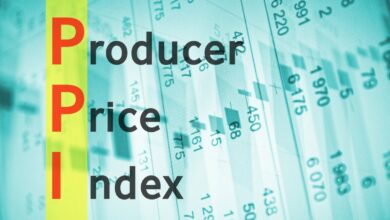Ghana’s Inflation Rate Declines to 38.1%: A Bright Spot in Economic Landscape
Ghana's Inflation Rate Declines to 38.1%: A Bright Spot in Economic Landscape

In a recent economic update from Ghana, there’s some promising news for the nation’s economy. Professor Samuel Kobina Annim, the government statistician, has revealed a noteworthy drop in the inflation rate for September 2023. This drop, from 40.1% in August to 38.1%, signifies a positive shift in the country’s economic landscape. Let’s dive deeper into what this means for everyday people like you and me.
To start, let’s talk about what inflation is. Inflation is essentially a measure of how much prices for everyday things like goods and services are going up. When inflation is high, it means your money doesn’t stretch as far, and things like food and essentials become pricier. On the flip side, when inflation drops, your money’s purchasing power increases, and prices become more stable.
So, why the drop in inflation? Professor Annim points to a few key reasons. One of the big ones is the decrease in prices for both food and non-food items. Food inflation, which dipped from 51.9% in August to 49.4% in September, is great news because a good chunk of our earnings goes into buying food. Non-food items also became more affordable, with non-food inflation dropping from 30.9% to 29.3%.

The impact of all this on the everyday Ghanaian is substantial. A lower inflation rate means your money can go further. It’s great for consumers because it means you don’t have to worry as much about your money losing value quickly. Businesses also benefit, as they can better plan for the future with more predictable costs. This all adds up to a healthier and more stable economic environment.
While a drop in inflation is positive, it’s just one part of the puzzle. Ghana’s economy is influenced by many factors, including government policies, global market trends, and more. The key takeaway here is that things are looking up, but it’s essential to remember that maintaining economic stability is an ongoing effort. The government, along with policymakers and businesses, will need to keep working on maintaining a stable economic environment and addressing various challenges to ensure this positive trend continues.
So, for the average Ghanaian, this means there’s hope for a better, more stable economic future. With lower inflation, your money goes further, making life a bit easier for you and your family. It’s a sign that Ghana is on the right track, but building a strong economy takes time and effort. Let’s celebrate the good news while keeping an eye on the bigger picture of Ghana’s economic journey.




